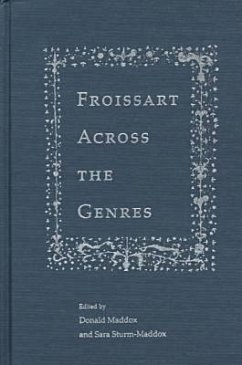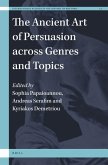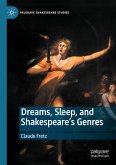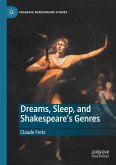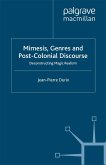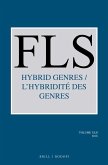"An impressive collection of essays which attest to the range and variety of Froissart's literary output. . . . [It] ranges not only 'across the genres' but also across the ateliers that subsequently reproduced Froissart's works in manuscript."--Laurence de Looze, University of Western Ontario Offering a new and comprehensive assessment of the works of Jean Froissart, one of the most engaging and prolific authors of the 14th century, this collection examines his writings across the broad spectrum of his literary and historical production. Froissart, an active participant in the political and literary life of his age, is regarded as one of its great synthesizing minds. These essays by an international array of scholars, including editors and translators of Froissart and many of his prominent critics, challenge unduly general views of his attitudes as a poet, writer, and historian grappling with the major sociopolitical and cultural issues of his turbulent and paradoxical period. Collectively addressing his work "across the genres," they offer new and nuanced perceptions of his engagement in the writing of selfhood, fiction, and history. Contents Introduction Writing: History, Fiction, and the Self, by Sara Sturm-Maddox and Donald Maddox I. Testimony and Textuality in the Chroniques 1. Configuring Transcience: Patterns of Transmission and Transmissibility in the Chroniques (1395-1995), by Peter F. Ainsworth 2. Froissart, Personal Testimony, and the Peasants' Revolt of 1381, by Charles T. Wood 3. Froissart's 1389 Travel to Béarn: A Voyage Narration to the Center of the Chroniques, by George T. Diller II. Framing Selfhood in Froissart's Poetry 4. Le Joli Buisson de Jonece: Froissart's Mid-Life Crisis, by William W. Kibler 5. Froissart's Poetic Prison: Enclosure as Image and Structure in the Narrative Poetry, by Keith Busby 6. Imitation, Metamorphosis, and Froissart's Use of the Exemplary Modus tractandi, by Douglas Kelly 7. History and Narration in Froissart's Dits: The Case of Le Bleu Chevalier , by Rupert T. Pickens III. Verse Romance and Poetic Renewal 8. Meliador and the Inception of a New Poetic Sensibility, by Michel Zink IV. Froissart and His Contemporaries 9. Theory and Practice: The Portrayal of Chivalry in the Prose Lancelot, Geoffroy de Charny, and Froissart, by Elspeth Kennedy 10. Froissart and Chaucer, by John M. Fyler V. Image and Reception 11. Image and Propaganda: The Illustration of Book I of Froissart's Chroniques, by Laurence Harf-Lancner Donald Maddox and Sara Sturm-Maddox are professors of French and Italian at the University of Massachusetts, Amherst. In collaboration, they have edited six volumes of essays on medieval literature and culture, most recently Melusine of Lusignan: Founding Fiction in Late Medieval France.
Hinweis: Dieser Artikel kann nur an eine deutsche Lieferadresse ausgeliefert werden.
Hinweis: Dieser Artikel kann nur an eine deutsche Lieferadresse ausgeliefert werden.

